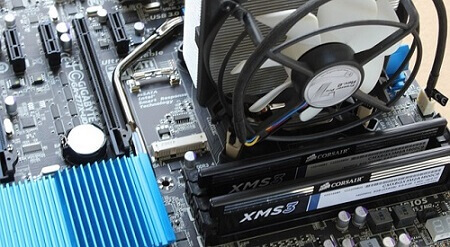Selecting compatible RAM for your computer is a crucial aspect often overlooked by many.
Contrary to the assumption that any RAM can be arbitrarily chosen and slotted into a computer or laptop, ensuring compatibility is vital.
Whether you are building a gaming machine or contemplating a RAM upgrade for your existing laptop, choosing the right RAM is paramount for optimal performance.
Boosting your machine’s performance hinges on selecting the correct RAM modules.
This article will guide you through the essentials, enabling you to make informed choices when it comes to choosing RAM for your desktop computer or laptop.
For the purpose of this discussion, we will focus on DDR4, predating the emergence of DDR5, which will be covered in a subsequent article.
How Much Memory Do You Need?
With the Windows 10 operating system becoming the norm, a minimum RAM of 8GB is often recommended for smooth operation.
Many reasonably priced Windows 10 laptops now come equipped with 8GB of DRAM, suitable for tasks such as work, light gaming, and moderate multitasking.
It’s crucial to recognize that activities as seemingly light as internet browsing can quickly consume over 50% of available RAM.
While modern browsers are designed to be more memory-efficient, other programs running concurrently may demand significant memory resources.
When the available memory is insufficient, the computer tends to exhibit sluggishness, impacting overall performance.
To address this, modern computers should have a minimum RAM capacity of 16GB.
This provides ample resources for those who engage in light multitasking.
For users involved in gaming or running resource-intensive programs, a RAM capacity of 32GB is recommended.
Individuals who are well-versed in their computing needs, especially those requiring even larger memory capacities, are aware of their specific requirements.
Understanding the significance of adequate RAM ensures a smoother and more efficient computing experience.
How To Know Your Current Memory Of Your Computer
To ascertain the amount of memory (RAM) installed on your Windows 10 machine, follow these straightforward steps:
- Open any folder on your computer.
- Locate the ‘This PC’ icon, typically found on the left side of the folder.
- Right-click on the ‘This PC’ icon.
- Select ‘Properties’ from the context menu.
Upon doing so, a window will appear displaying essential information about your computer, including the currently installed RAM.
This quick and accessible method allows you to check your system’s memory configuration without the need for third-party applications or advanced procedures.
How to Know The Current Memory Of Your Computer Method 2
using the DirectX Diagnostic Tool (dxdiag) is another effective method to gather detailed information about your computer, including memory capacity and other specifications. To access this information, follow these steps:
- Open the search bar on the taskbar.
- Type “dxdiag” and press Enter.
- The DirectX Diagnostic Tool window will appear, providing an array of information about your computer.
- Navigate to the “System” tab to find details such as the total memory (RAM) installed on your computer.
This tool offers a comprehensive overview of your system’s specifications, making it a valuable resource for users seeking detailed information about their computer’s hardware and capabilities.
Upgrading
Upgrading RAM can significantly enhance a computer’s performance, but it’s essential to note that not all machines allow for RAM upgrades.
In cases where the RAM is soldered onto the motherboard, upgrading becomes impractical or impossible.
For systems where RAM is not soldered and can be upgraded, compatibility is crucial. Different generations of RAM, such as DDR3 and DDR4, are not interchangeable due to differences in keying and electrical requirements.
It’s important to ensure that the selected RAM aligns with the specific requirements of your computer.
Many sellers offer memory configurators, allowing buyers to make informed choices based on their system’s specifications.
By checking the manufacturer’s product page or using a memory configurator, users can identify the appropriate RAM format for their machines.
Choosing RAM that is compatible with your system contributes to improved performance and faster operation, providing a worthwhile upgrade for those seeking enhanced computing capabilities.
Conclusion
Selecting RAM for your machine is a more intricate process compared to choosing peripherals like keyboards or mice.
Unlike those peripherals, where compatibility is often less of an issue, RAM must be carefully chosen to ensure seamless integration with your system.
Choosing incompatible RAM can lead to various issues, including system instability, crashes, or even failure to boot.
Seeking the assistance of professionals or utilizing resources provided by the manufacturer, such as memory configurators, is a prudent approach.
Professionals can provide valuable guidance on selecting the right type, speed, and capacity of RAM that aligns with your computer’s specifications.
This approach helps guarantee that the chosen RAM is not only compatible but also optimally suited to enhance the performance of your machine.
When it comes to upgrading or replacing RAM, taking the time to make informed decisions ensures a smoother and more efficient computing experience.



